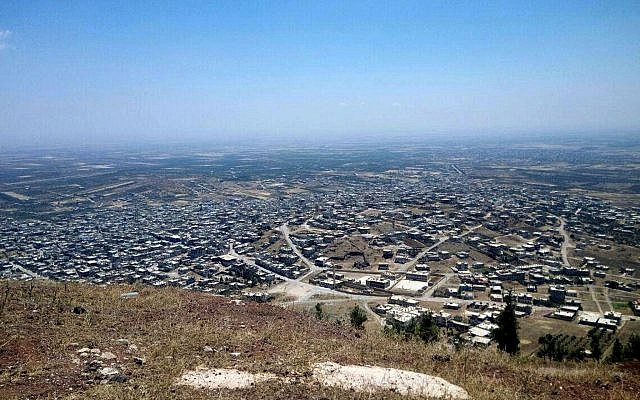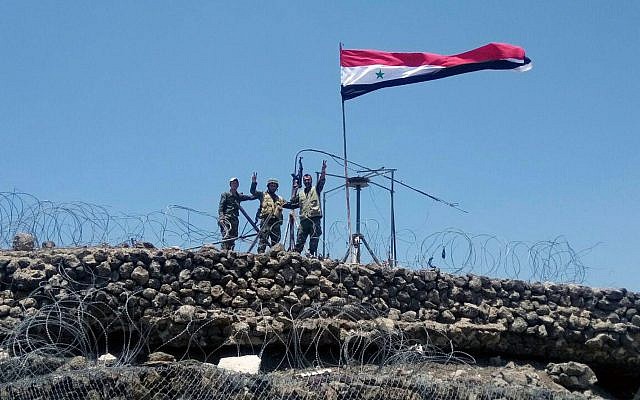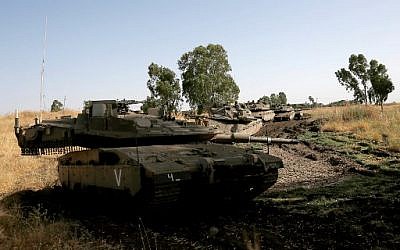In apparent acknowledgment of missile attack on sites in southern Syria, Netanyahu says IDF is constantly working to prevent foes from establishing bases along the border

Prime Minister Benjamin Netanyahu on Wednesday said Israel was carrying out pre-emptive attacks to prevent its “enemy” from establishing military bases “in our vicinity,” in an apparent acknowledgment of a strike earlier in the day on alleged Hezbollah facilities across the border in Syria.
“We respond with attacks and force to every attack against us. But we are not only taking action after the fact, we are also denying the enemy capabilities before the fact. In a systematic and consistent way, we are working to prevent our enemy from establishing attack bases against us and in our vicinity,” Netanyahu said.
In the predawn hours of Wednesday morning, Syrian state media reported that Israel fired several missiles toward a mountain near the Golan border.
According to Syrian and Lebanese reports, the target of the strikes was infrastructure set up by the Iran-backed Hezbollah terror group and its allies in recent months.
Israel has not officially commented on the alleged strike.
Netanyahu made his remarks at a state memorial service for former president Ephraim Katzir, who died 10 years ago.
According to Syria’s official SANA news outlet, the strike targeted sites around Tel al-Harra, an area that Hezbollah has previously identified as being of “great strategic importance” because of the visibility it offers of the surrounding area.

There were no reports of injuries.
SANA also reported Israel had jammed Syrian air defense radars in the area, in what it called an act of electronic warfare.
Lebanese media reported earlier that Israel conducted reconnaissance flights around the Syrian-Lebanese border.
Hours after the alleged strike, a small drone penetrated Israeli airspace from Lebanon before turning back over the border, the Israeli military said.
Shortly after Syrian President Bashar Assad’s return to the Syrian Golan Heights, in July 2018, Hezbollah published a map identifying Tel al-Harra, the highest point in southern Syria, as \of “great strategic importance” because of the visibility it offers of the surrounding area.

In April, the Lebanese al-Modon news outlet reported that the terror group had been in talks with the Syrian military about establishing observation posts on Tel al-Harra.
While Israel has carried out hundreds of strikes in Syria in recent years, they have usually targeted bases linked with Iran. In the rare occasions that Israel has targeted villages and towns along the Golan Heights border, it has been after identifying Iranian and Hezbollah attempts to establish cells and infrastructure in the area.

Earlier this month, two rockets were fired from Syria toward Israel’s Mount Hermon in the Golan Heights. There were no reports of injuries or damage.
Toward the start of the Syrian civil war, the Israeli military established a number of “red lines” that if violated would result in a retaliatory strike, including any attacks — intentional or otherwise — against Israel.
They also included Iranian efforts to establish a permanent military presence in Syria and attempts to transfer advanced munitions to the Lebanon-based Hezbollah terrorist group.
In recent years, Israel has acknowledged conducting hundreds of airstrikes in Syria in response to these “red line” violations.
As reported by The Times of Israel
